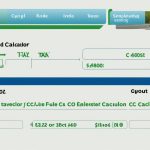Last Updated on: 31st May 2024, 11:22 am
Did you know that in the United Kingdom, corporation tax is the second-largest source of tax revenue for the government? It accounts for a significant portion of the country’s annual tax income, highlighting its importance in the UK economy. Understanding corporation tax is crucial for businesses operating in the UK, as it directly impacts their financial obligations and compliance requirements.
In this comprehensive guide, we will dive into the world of corporation tax in the UK, providing you with a complete understanding of its definition, who is subject to it, and the responsibilities associated with paying it. Whether you are starting a new business or looking to expand your understanding of tax obligations, this article will equip you with the knowledge you need to navigate the complexities of corporation tax with confidence.
Understanding the Basics of Corporation Tax
In this section, we will delve deeper into the fundamental concepts of corporation tax. It is important for businesses to have a clear understanding of the basics of this tax to ensure compliance and make informed financial decisions. Let’s begin our journey into the world of corporation tax.
Purpose of Corporation Tax
The main purpose of corporation tax is to ensure that companies contribute to the public funds based on their profits. By imposing a tax on corporate profits, the government can generate income to fund essential public services like healthcare, education, infrastructure, and defense.
Difference from Income Tax
Corporation tax differs from income tax, which is payable by individuals on their personal earnings. While income tax is based on an individual’s income from various sources, corporation tax focuses specifically on the profits generated by companies.
Income tax and corporation tax are administered and calculated separately, reflecting varying rules and rates for each. Understanding the distinction between these two types of taxation is crucial to accurately fulfill your tax obligations.

Now that we have gained an introductory understanding of corporation tax and its purpose, it’s time to explore its definition, the entities subject to this tax, and the responsibilities that come with paying corporation tax.
What is Corporation Tax?
In this section, we will define corporation tax and provide a clear understanding of its scope. Corporation tax refers to the tax levied on the profits generated by companies operating in the United Kingdom. It is an essential part of the country’s tax system and plays a crucial role in funding public services and infrastructure.

Definition and Entities Subject to Corporation Tax
Corporation tax is applicable to a wide range of entities operating within the UK. The main entities subject to corporation tax include:
- Limited companies: This includes both private limited companies (Ltd) and public limited companies (PLC). Regardless of their size, limited companies are liable to pay corporation tax on their profits.
- Foreign companies with a UK branch or office: Companies based abroad that have a presence in the UK through a branch, office, or establishment are also subject to corporation tax on the profits generated from their UK activities.
- Unincorporated associations: Certain types of organizations, such as clubs, societies, and other unincorporated bodies, may also fall within the scope of corporation tax, depending on their activities and income.
The Responsibilities of Paying Corporation Tax
Paying corporation tax comes with specific responsibilities that businesses need to fulfill. These responsibilities include:
- Registering with HMRC: Every entity that is subject to corporation tax must register with Her Majesty’s Revenue and Customs (HMRC).
- Keeping accounting records: Businesses are required to maintain accurate accounting records to support their corporation tax calculations and financial statements.
- Filing a company tax return: In order to report their profits and tax liability, companies must submit an annual company tax return to HMRC within the specified deadline.
By fulfilling these responsibilities, businesses can ensure compliance with the UK’s corporation tax regulations and avoid penalties or legal issues.
Who Pays Corporation Tax?
In the UK, businesses are subject to corporation tax based on certain criteria. While most businesses are liable to pay corporation tax, there are exceptions. Let’s explore who pays corporation tax and the factors that determine a business’s liability.
Corporation tax is applicable to:
- Limited companies
- Foreign companies with a UK branch or office
- Unincorporated associations
These entities are required to pay corporation tax on their taxable profits, which include trading profits, investments, and chargeable gains.
However, there are some exceptions to this rule. Certain organizations and bodies, such as charities, clubs, and amateur sports associations, may enjoy special tax treatment that exempts them from paying corporation tax. It is important for businesses to check whether they fall under any exemptions or special rules.
Moreover, even if a business is not currently making a profit, it may still have various tax obligations and be required to file a company tax return.
To determine whether a business is liable to pay corporation tax, HM Revenue and Customs (HMRC) considers factors such as:
- The legal structure of the business
- The location of its activities
- The nature of the business operations
- The level of profits generated
It is crucial for businesses to understand their obligations when it comes to corporation tax and seek professional advice if needed. Non-compliance with tax regulations can lead to penalties and legal consequences.
By ensuring compliance with corporation tax requirements, businesses can avoid unnecessary risks and operate in accordance with the law.

How to Register with HMRC?
If you have decided to start a business in the UK, registering for corporation tax is an essential step in ensuring compliance with HMRC regulations. This section will guide you through the process of registering your company for corporation tax, providing step-by-step instructions to simplify the procedure.
Step 1: Determine your tax liability
Before registering for corporation tax, it’s crucial to establish whether your business is liable to pay this tax. Most limited companies, including foreign companies with a UK branch or office, fall under the scope of corporation tax. Unincorporated associations, such as clubs and co-operatives, are also subject to this tax.
Step 2: Gather the required information
When registering with HMRC, you’ll need to provide certain information about your company. This includes your company name, registration number, registered office address, date of incorporation, and the nature of your business activities. It’s also important to have your Unique Taxpayer Reference (UTR) handy, as it may be required during the registration process.
Step 3: Create an HMRC online account
To register for corporation tax, you’ll need to create an HMRC online account. Visit the HMRC website and follow the instructions to set up your account. This will allow you to manage your tax affairs more efficiently, including submitting tax returns and making payments.
Step 4: Register for corporation tax
Once you have your HMRC online account, you can begin the registration process. Sign in to your account and navigate to the “Corporation Tax” section. Follow the prompts to provide the necessary information about your company. You may also need to provide details of the company directors and shareholders, as well as any relevant financial information.
Step 5: Submit your registration
After completing the registration form, review the information for accuracy and submit your registration. HMRC will then process your application and assign your company a Corporation Tax reference number. This reference number is essential for all future correspondence with HMRC regarding your corporation tax obligations.
By following these steps, you can ensure a smooth and successful registration process with HMRC. Registering for corporation tax allows you to fulfill your legal obligations and ensure that your business operates within the UK tax system.
Current Corporation Tax Rates and Bands
In the UK, the current corporation tax rates and bands play a crucial role in determining the tax liabilities of businesses. It is important for companies to understand how these rates are calculated and to stay informed about any recent changes.

Corporation tax rates are primarily based on a company’s profits. The rates are applied to different bands of profits, with higher profits attracting higher tax rates. This progressive system ensures that businesses with larger profits contribute to a higher tax revenue.
The current corporation tax rates in the UK are:
| Profit Band | Tax Rate |
|---|---|
| Up to £50,000 | 19% |
| £50,001 to £250,000 | 19% |
| Above £250,000 | 19% |
As of the current tax year, these rates remain unchanged. However, it’s worth noting that the government periodically reviews and may adjust corporation tax rates and bands to ensure a fair and efficient taxation system.
For businesses operating within the specified profit bands, the tax rate remains at 19%. It is important for companies to calculate their profits accurately and determine the applicable tax rate to avoid any inaccuracies or penalties.
Being aware of the current corporation tax rates and bands allows businesses to plan their finances effectively and ensure compliance with tax regulations. Understanding the tax structure and staying up to date with any changes can help companies make informed decisions and optimize their tax liabilities.
Calculating Your Corporation Tax Liability
Understanding how to calculate your corporation tax liability is essential for businesses operating in the UK. By determining the tax amount accurately, you can fulfill your legal obligations and ensure compliance with HMRC regulations.
In this section, we will guide you through the process of calculating your corporation tax liability, taking into account the relevant factors that influence the final tax amount.
The first step in calculating your corporation tax liability is to determine your company’s profits. This is done by deducting any allowable expenses and adjustments from your total income.
Allowable expenses may include business costs such as rent, salaries, and marketing expenses, while adjustments can be made for capital allowances or losses from previous years.
Once you have calculated your company’s profits, you will need to apply the applicable corporation tax rate. The current corporation tax rate stands at 19% for most businesses. However, it’s important to check for any recent changes in the rates that may affect your tax liability.
Additionally, there may be specific reliefs and deductions available that can reduce your corporation tax liability. Examples of these reliefs include research and development (R&D) tax credits, capital allowances for investments in certain assets, or relief for losses carried forward from previous years.
These reliefs can significantly impact your tax liability and should be carefully considered.
To calculate your corporation tax liability, you can utilize the following formula:
Tax Liability = (Profit × Corporation Tax Rate) – Reliefs and Deductions
Remember to consult with a qualified accountant or tax advisor to ensure accurate calculations and to maximize any available tax savings. They will be able to provide expert advice tailored to your specific business situation.
| Profit | Corporation Tax Rate | Reliefs and Deductions | Tax Liability |
|---|---|---|---|
| £XXXXX | 19% | £XXXXX | £XXXXX |
How to Pay Corporation Tax in the UK?
Once you have calculated your corporation tax liability, the next step is to understand how to pay it. In this section, we will outline the various methods and options available for businesses to pay their corporation tax in the UK, along with important information regarding payment deadlines and HMRC payment options.
Paying Corporation Tax:
There are several methods you can use to pay your corporation tax:
- Online Payment: The most convenient and commonly used method is paying online through the HMRC online portal. This option provides a secure and efficient way to make your tax payment. You can use a debit or credit card, or make a direct bank transfer using the Faster Payments service or Bacs.
- Bank Transfer: If you prefer to pay directly from your bank account, you can initiate a bank transfer to HMRC. It’s important to use the correct payment details provided by HMRC to ensure your payment is properly allocated.
- Direct Debit: Direct debit is another option available for businesses to pay their corporation tax. This method allows you to automate your tax payments, ensuring they are paid on time without the need for manual intervention.
- By Cheque: Although less common in today’s digital age, you can still pay your corporation tax by sending a cheque to HMRC. Make sure to include all the necessary details, such as the tax reference number and payment slip, to ensure accurate processing.
- CHAPS: CHAPS (Clearing House Automated Payment System) is a same-day electronic payment service that can be used for making large or time-critical corporation tax payments. This method may incur additional fees, so it’s advisable to check with your bank beforehand.
HMRC Payment Options:
HMRC provides various payment options to suit the diverse needs of businesses. It’s essential to understand the payment deadlines and select the most suitable method for your circumstances. The following HMRC payment options are available:
| Payment Method | Payment Deadline |
|---|---|
| Online payment (Faster Payments, Bacs, card) | Due by nine months and one day after the end of your accounting period |
| Bank transfer | Due by nine months and one day after the end of your accounting period |
| Direct debit | Due by nine months and one day after the end of your accounting period (or quarterly if you pay by instalments) |
| By cheque | Due by three working days before the payment deadline |
| CHAPS | Due by the payment deadline |
It’s important to note that late or incorrect payments may result in penalties or interest charges, so it’s crucial to adhere to the payment deadlines and ensure accurate payment details.
By understanding the available payment methods and HMRC payment options, businesses can fulfill their corporation tax obligations efficiently and avoid any unnecessary penalties. Choose the method that best suits your needs and ensures timely payment of your corporation tax.
Allowances, Deductions, and Reliefs to Optimise Your Tax Bill
When it comes to managing your corporation tax bill, understanding the available allowances, deductions, and reliefs can make a significant difference. By optimizing these opportunities within the legal framework, you can reduce your tax liabilities and maximize your company’s financial position.
One important strategy is to leverage corporation tax allowances. These are specific deductions that businesses can claim to reduce their taxable profits. Common examples include capital allowances, which allow you to claim tax relief on certain investments in business assets, such as machinery or vehicles. By carefully analyzing your business’s expenses, you can identify eligible items and take advantage of these allowances to lower your tax bill.
Furthermore, corporation tax deductions provide an additional means of optimizing your tax bill. These deductions are specific expenses that can be subtracted from your company’s taxable profits, lowering the overall amount of tax owed. Examples of deductions may include costs related to employee salaries, travel expenses, or research and development activities. By accurately tracking and documenting these expenses, you can ensure that you claim all eligible deductions and minimize your tax liability.
Additionally, various corporation tax reliefs are available to incentivize specific industries or activities. For instance, research and development (R&D) relief offers tax credits or enhanced deductions for businesses engaged in innovative projects. This relief encourages investment in research and development and rewards companies for their contributions to technological advancements. By staying informed about industry-specific reliefs, you can identify opportunities to reduce your tax burden while fostering growth and innovation within your business.
To optimize your corporation tax bill, it is essential to consult with tax professionals or seek expert advice. They can guide you through the complex process, helping you identify all applicable allowances, deductions, and reliefs for your business. By taking a proactive approach to tax planning and staying updated on changes to tax regulations, you can ensure that your tax strategy aligns with your business goals and financial objectives.
| Allowances | Deductions | Reliefs |
|---|---|---|
| Capital allowances | Employee salaries | Research and development (R&D) relief |
| Enhanced deductions | Travel expenses | Industry-specific reliefs |
Conclusion
Understanding and fulfilling your corporation tax obligations is crucial for businesses operating in the UK. Throughout this article, we have explored the basics of corporation tax, including its definition, entities subject to it, and the responsibilities associated with paying it.
We have clarified who pays corporation tax and discussed the process of registering with HMRC. Additionally, we have provided insights into the current corporation tax rates and bands, as well as how to calculate your corporation tax liability.
Moreover, we have outlined various methods and options for businesses to pay their corporation tax in the UK, while also highlighting allowances, deductions, and reliefs that can help optimize your tax bill.
In summary, ensuring compliance with corporation tax regulations is vital for businesses to avoid penalties and maintain financial stability. By understanding and fulfilling your corporation tax obligations, you can contribute to the growth and success of your company while operating within the legal framework set by HMRC.
FAQ
1. What is Corporation Tax?
Corporation Tax is a tax imposed on the profits of businesses operating in the UK. It is a direct tax levied on a company’s taxable profits and applies to limited companies, foreign companies with a UK branch or office, and unincorporated associations.
2. How is Corporation Tax calculated?
Corporation Tax is calculated based on a company’s profits, which includes income from trading activities, investments, and capital gains. Deductions for allowable expenses, such as staff salaries, rent, and equipment costs, are subtracted from the total revenue to arrive at the taxable profit.
3. What is the current Corporation Tax rate in the UK?
As of 2024, the main rate of Corporation Tax in the UK is 19%. However, it is important to note that this rate is subject to change, so businesses should stay informed about any updates or changes to the tax rate.
4. When is Corporation Tax due?
Companies in the UK are required to pay Corporation Tax on their profits within 9 months and 1 day after the end of their accounting period. Additionally, companies must file a Corporation Tax return with HM Revenue and Customs (HMRC) within 12 months of the end of the accounting period.
5. Are there any exemptions or reliefs available for Corporation Tax?
Yes, there are various exemptions, reliefs, and allowances that can reduce a company’s Corporation Tax liability. This includes deductions for research and development (R&D) costs, capital allowances for certain investments in assets, as well as specific reliefs for small businesses and startups.




















No Comments
Leave a comment Cancel